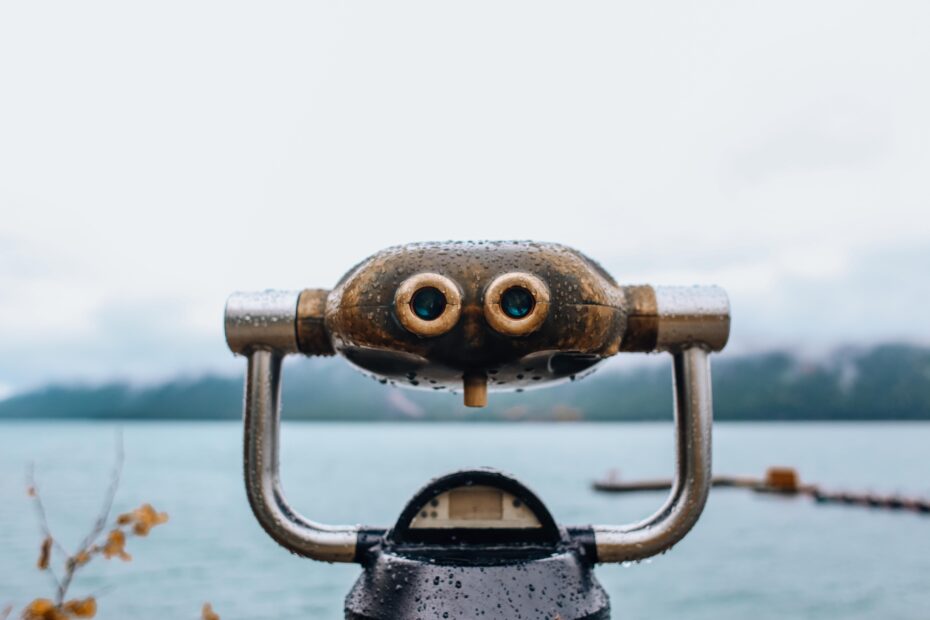Observation has much more value and power than just being able to identify that your friend is wearing the same shirt as yesterday.
Have you ever been called an “observant” individual? If so, how often do you hear people describe you as “observant”?
Let me assist you if you are having trouble recalling a particular incident. Set aside some time to reflect on what you have learned merely by observation, and then write it all down. Take in all information, no matter how big or insignificant it seems.
You will realize how much you have gained throughout your life just by observing people and situations at school, college, airports, restaurants, foreign cities, workplaces, and so on.
The simple act of observation solves problems and gets us out of “I do not know what to do” situations.
Observation is one of the most powerful tools we can use when trying to understand our world — or even something as simple as understanding how other people work so that we can better connect with them.
In this article, I’ll go over why observation is such an important skill and highlight how to use it more effectively so that you can make better decisions in life. So grab your favorite notebook, and let’s get started!
DANDAPANI – Keynote Speaker, Hindu Priest, Entrepreneur, and Former Monk of 10 years, in his famous book, The Power of Unwavering Focus, defines observation as:
Observation is awareness being conscious of what it is being aware of. If you have ever wondered how to be observant, or what observation is, now you know. Observation is the ability to separate awareness from that which it is aware of and be aware of the experience without being absorbed in it.
Dandapani. The Power of Unwavering Focus (p. 135). Transworld. Kindle Edition.
Accurate observation requires a conscious effort to put aside your preconceived notions and focus on what is actually happening.
The ability to observe is a skill that takes practice to develop. While we may think we’re paying attention, our minds are often wandering and distracted by thoughts and feelings about what’s happening. It requires a conscious effort to put aside your preconceived notions and focus on what is actually happening.
Observation requires awareness of your thoughts and feelings and an objective stance toward the subject matter. You need to be aware of biases, and you might have to introspect, like being prejudiced against certain people or groups based on their race or gender, or other characteristics.
An observant person does not notice something once but instead over an extended period.
An observant person does not notice something once but instead over an extended period. When learning to be observant, it’s essential to understand that observation is a skill that must be learned and developed over time. It’s also an art form that takes practice.
Observation is a process, not a one-time event!
To become more observant – whether watching an animal or a person – you have to practice paying attention for your brain to know what things are worth noticing. The more you practice observing things around you (and the better your memory is), the easier it will become for your brain to recognize patterns of behavior from familiar people or animals.
By observing details, you can make more accurate predictions about events in your life and the lives of others.
When you focus on the big picture, your mind is filled with thoughts about the future or past. When you focus on details and observations, you can make more accurate predictions.
This is because when we have fewer distractions in our minds, we can engage more fully with what is happening right now.
As a result of this increased engagement and attention to detail, our brain can process information faster than usual—which means that we can better predict where something may be going next!
Focus on essential details instead of just “getting by” day-to-day life.
Don’t just look at things; watch them unfold in your mind and draw conclusions.
Observation is not the same as watching. Observation is a skill that can be learned and is vital in many life areas. When you watch something, you’re simply looking at what’s happening. When you observe, though, you take note of things like the context surrounding an event or interaction—what other people are doing, what they’re saying—and then draw conclusions based on your observations.
Observational skills will help us understand how human beings interact with one another — whether our coworkers or strangers on public transportation — but they also apply to our personal lives.
We’ll be more effective parents if we observe our kids’ behavior; we’ll better understand how our partners interact with others when we observe them in social situations; and so on.
Conclusion
The Power of Observation is something that anyone can develop. If you want to start using it, there are some simple things you can do.
First, look for opportunities to apply your powers of observation in real-world situations. Secondly, please pay attention to the details when watching others work so that you can learn from them!
Finally, remember what you’ve learned by writing down your observations. This way, applying these learnings won’t slip your mind later.
At Vineet Sethi Consulting, we believe that Business and People are two sides of the same coin. Our approach to transforming organizations, teams, and individuals is based on Standard Customization, stemming from the philosophy that no one size fits all.
Contact us at hello@vineetsethi.com or on our social media channels for more information.
